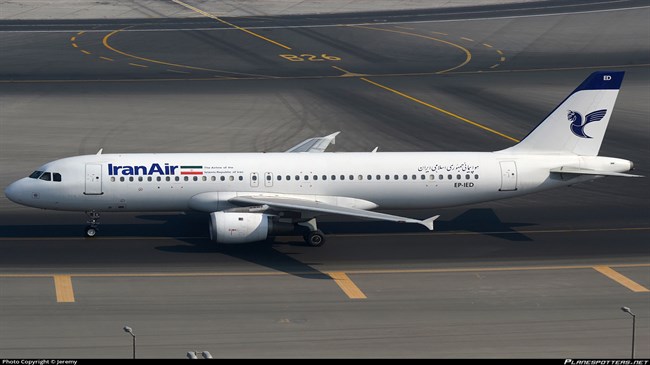
France pushing Iran business ties
February 09, 2018 - France will encourage its firms to do business in Iran despite uncertainty over a landmark 2015 nuclear deal putting the business environment in 'limbo', a senior French finance official said on Thursday.
Along with other European countries, France has been looking to increase trade with Iran since Paris, Washington and other world powers agreed to lift economic sanctions in 2016 in exchange for modifications on Tehran's nuclear program, Reuters reported.
However, on January 12, US President Donald Trump vowed to restore US sanctions unless France, Britain and Germany change what he calls the 'worst deal ever' to his liking, effectively putting it on life support until mid-May.
"We are encouraging companies to keep doing business in Iran," Joffrey Celestin-Urbain, the director of bilateral relations at the Finance Ministry said at the Euromoney Iran conference.
"We are in limbo on the international scene. Nobody knows what will happen after May. This is the uncertainty our French companies are facing and this is something you have to take for granted if you want to do business in Iran."
French exports to Iran for the first 11 months of 2017 rose 120 percent to €1.29 billion ($1.6 billion) while imports grew 80 percent to €2.16 billion, Celestin-Urbain said.
He said the short-term priority was to keep trade simple and complete a scheme this year to offer euro-denominated credits to Iranian buyers of French goods — a move that would keep bilateral trade outside the reach of US sanctions.
The head of state-owned investment bank Bpifrance, which is putting the plan together, said he was confident the scheme, which had a pipeline of deals worth €1.5 billion, could start operating by end-May or early-June.
However, he warned that talks were ongoing on how to protect French firms if the US snapped back sanctions.
"Everybody is waiting for the situation to be clarified," said Nicolas Dufourcq. "We are currently negotiating with the Iranian authorities. Everybody understands that it would be a force-majeure event and the loan would have to be reimbursed and if we find a solution it will have to be in French interests."
Tehran has been hoping for swift reintegration into global trade, but its failure to persuade Western banks to accept Iranian business has been the main roadblock to rehabilitation.
Reintegrating Iranian banks into the financial system would take time, and may require support from Tehran to help allay the extra costs to banks of added risk and additional checks.
"Unfortunately Iran's banking system has yet to see full benefits under the deal," Central Bank of Iran Governor Valiollah Seif said in a statement, read by his advisor Ahmad Azizi.
"Iran is watching to see if politics helps or hinders business."
Financing plane deals
Meanwhile, Iran Air Chief Executive Farzaneh Sharafbafi said on Thursday that her company is not having problems financing plane purchases from Boeing and Airbus but deliveries could be hampered if the United States does not extend export licenses.
She told Reuters on the sidelines of a Euromoney Iran conference that the national carrier would receive its first Boeing passenger jet later this year, after nuclear-related sanctions were lifted in 2016. Iran Air expects to start receiving custom-built Airbus aircraft next year.
"The delivery of Boeing will be in 2018 and Airbus in 2019.We have no problem with the financing of the deals," Sharafbafi said.
Iran Air has agreed to buy 80 aircraft from Boeing and 100 from Airbus but only a handful have been delivered amid what bankers describe as a shortage of financing for Iran, due to the reluctance of Western banks to risk US penalties.
Industry sources say another key sticking point is that Iran Air has been slow to pay deposits, which are needed for Boeing and Airbus to start building new jets.
So far Iran Air has received three brand-new Airbus jets originally built for other airlines that could not take delivery, and eight new ATR turboprops.
It is able to purchase planes under the 2015 deal to open up trade in exchange for modifications on Iran's nuclear activities.
Even after the accord, all exports of Western aircraft to Iran required licenses from the US Treasury because of the number of US parts. Current licenses expire at the end of 2020 and would need to be extended to complete the planned deliveries.
"Whether the licenses will be renewed, we have to wait and see: It depends on the United States," Sharafbafi said.
Under the planned delivery schedule, the initial period covered by existing licenses valid until 2020 would include 37-38 Airbus jets, 15 from Boeing and all 20 ATRs, she said.
"We should utilize this timeframe under the license," she added.
Iran has accused the United States of dragging its feet over the steps needed to implement the nuclear deal, which it says is non-negotiable.
